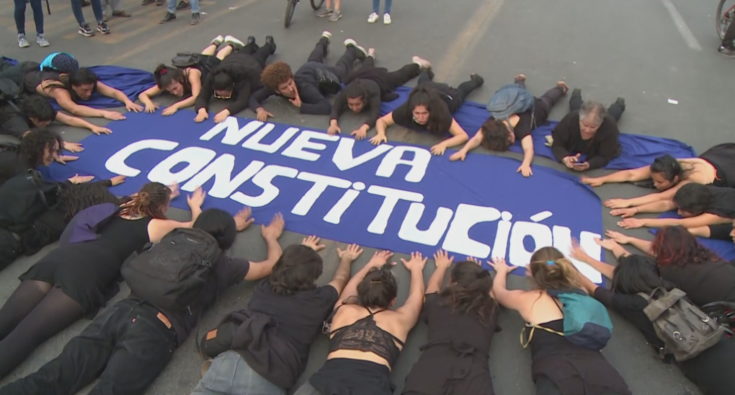I just used Google Translate to translate the constitution draft from Spanish to English (which worked great) and took two hours to browse through it. I had absolutely no idea what I was going to find in it.
To make my standpoint clear: I believe this constitutional draft to be one of the best constitutions I have read in a long time, if ever.
First, the draft is very easy to understand, there is no legal jargon like in the European Union’s Lisbon Treaty. It is not poetical like the French 1793 constitution or the American declaration of independence. it is clear and down to Earth-like the Swiss 1999 constitution. It is indeed long and precise and at times describes things that result from what is stated before and would, in a well functioning democracy, naturally be endorsed through use or justice decisions. Examples are that everyone has the right to a “nutritionally complete and culturally relevant diet” or “sport and physical activity.” But at least this makes it clear and it is overall much shorter and more understandable than the piles of lengthy and contradictory justice decisions that constitute the de facto British and US constitutions.
Secondly, the system described is rather simple. It advocates for a decentralized state with regions having strong power, much like the Netherlands, Germany, and Switzerland, as opposed to the centralized state Chile is today (like France or Poland). One of the two assemblies represents the regions, like in the Netherlands, Switzerland, or the US.
It recognizes and endorses the diversity of Chilean people and recognizes a variety of natives spoken languages as official languages of Chile, much like Belgium, the Netherlands, Sweden or Switzerland; as opposed to only recognizing Spanish as an official language like today (like France, Italy or Spain do with their majority language).
At the federal level, it has two assemblies and a president but gives the president limited powers, more than in Italy and Germany but less than in France or Poland, and probably less than the US too.
The constitution also gives space to citizen initiatives at the national, regional, and local levels through petitions. With 3% of the population proposing a law a referendum will be made, and with 5% of the population asking to reject a law a referendum will be made. This definitely gives a Swiss flavor to the constitution although initiatives are less pronounced than in Switzerland. It is worth noting that budget and taxes cannot be repelled through a referendum.
Overall this constitution does not invent much but takes a lot of good ideas from the best constitutions I know of (it is interesting to notice that it does not take anything from the British and French systems which are in their own ways two rather uninspiring models). Decentralization and popular participation like Switzerland, bicameralism with a regional assembly like The Netherlands. It keeps a president with a function somewhere between Germany and France. From my experience, it promises the best for a stable country and economy through a heavily consensus-based democracy. In a very South American way, it does display something of a “decentralized Calvinist” democracy as opposed to a “centralized Catholic/Anglican” one, which from experience is a guarantee of stability.
It does bring a set of “contemporary progressive ideas” that I personally find great but that conservatives could dislike though. The assemblies must-have man/woman parity. It states that “Nature has the right to respect and protection” which is a serious environmental statement. It also inscribes in the constitution that gender violence must be eradicated. Most of these “progressive ideas” reflect the fact that the constitutional convention was 50/50 men-women.
As I said it above I believe that this is an extremely strong draft that displays the best I could expect from a constitution to build a stable state and economy with a peaceful civil society. It shows that the convention has done more than a serious job. I think it is on par with the Swiss constitution which is the best I know of (I mostly know European constitutions) and is probably better. I believe this will be voted for if people read it. Some parts are a bit redundant so it does need to be streamlined at times, and it needs better typographic work, but except that I envy Chileans.
Raoul,
Arnhem, the Netherlands






